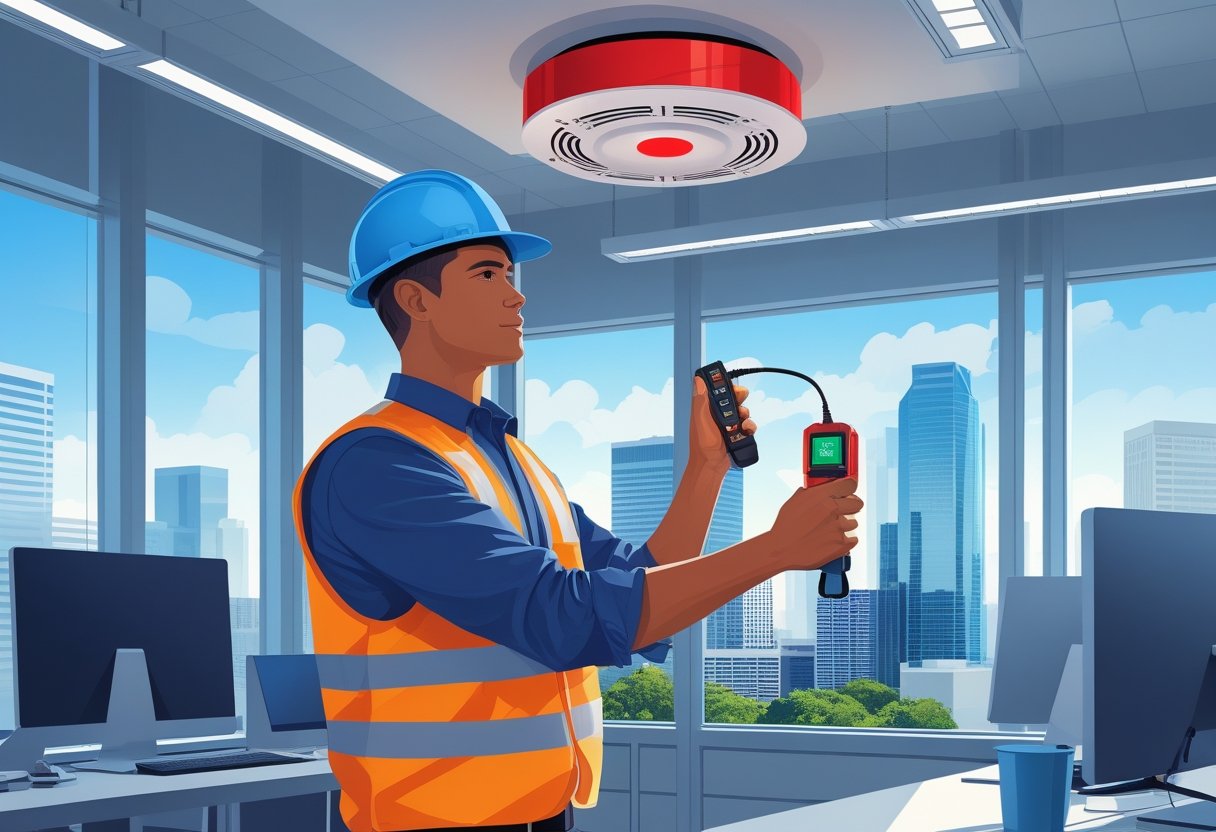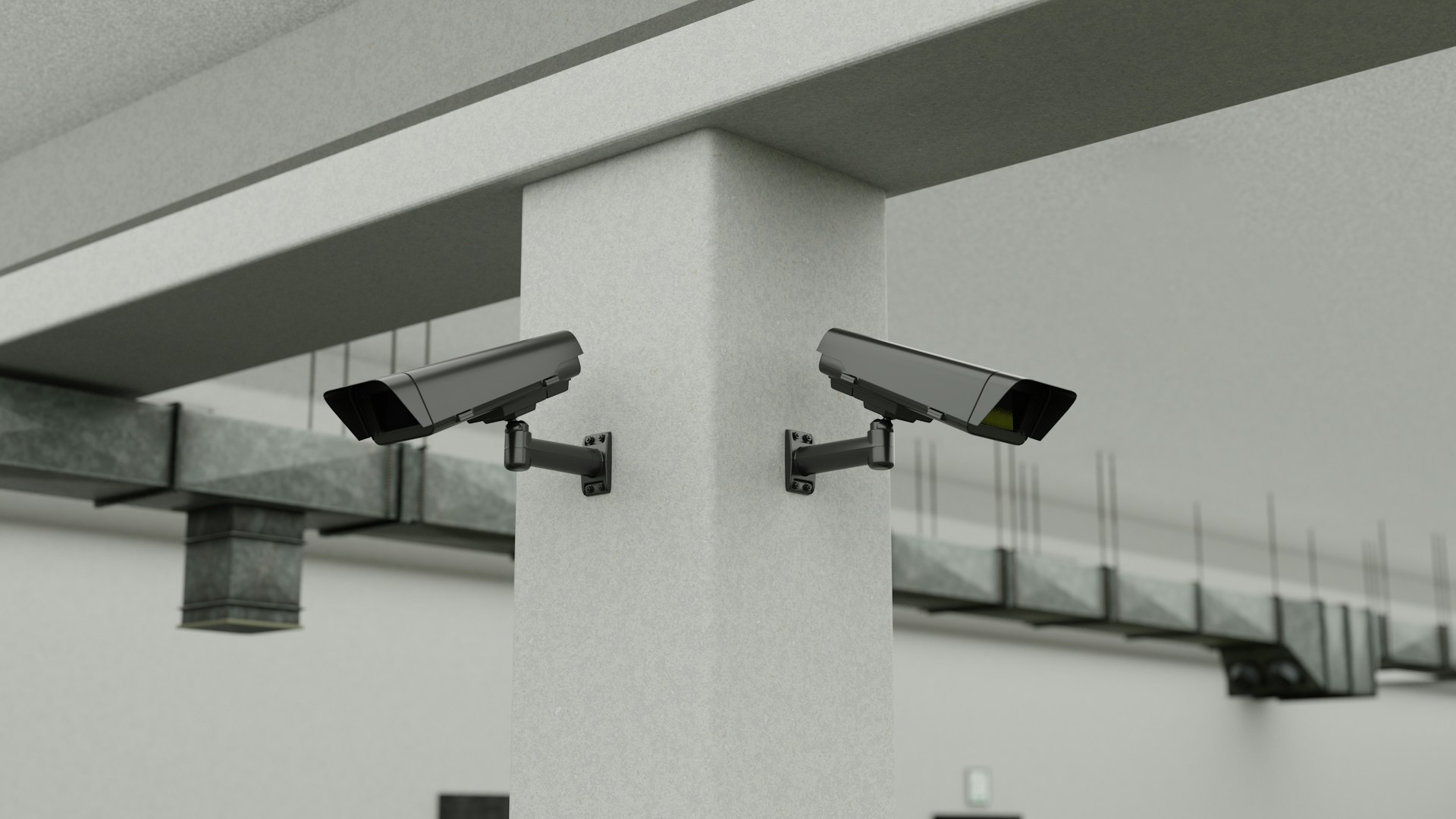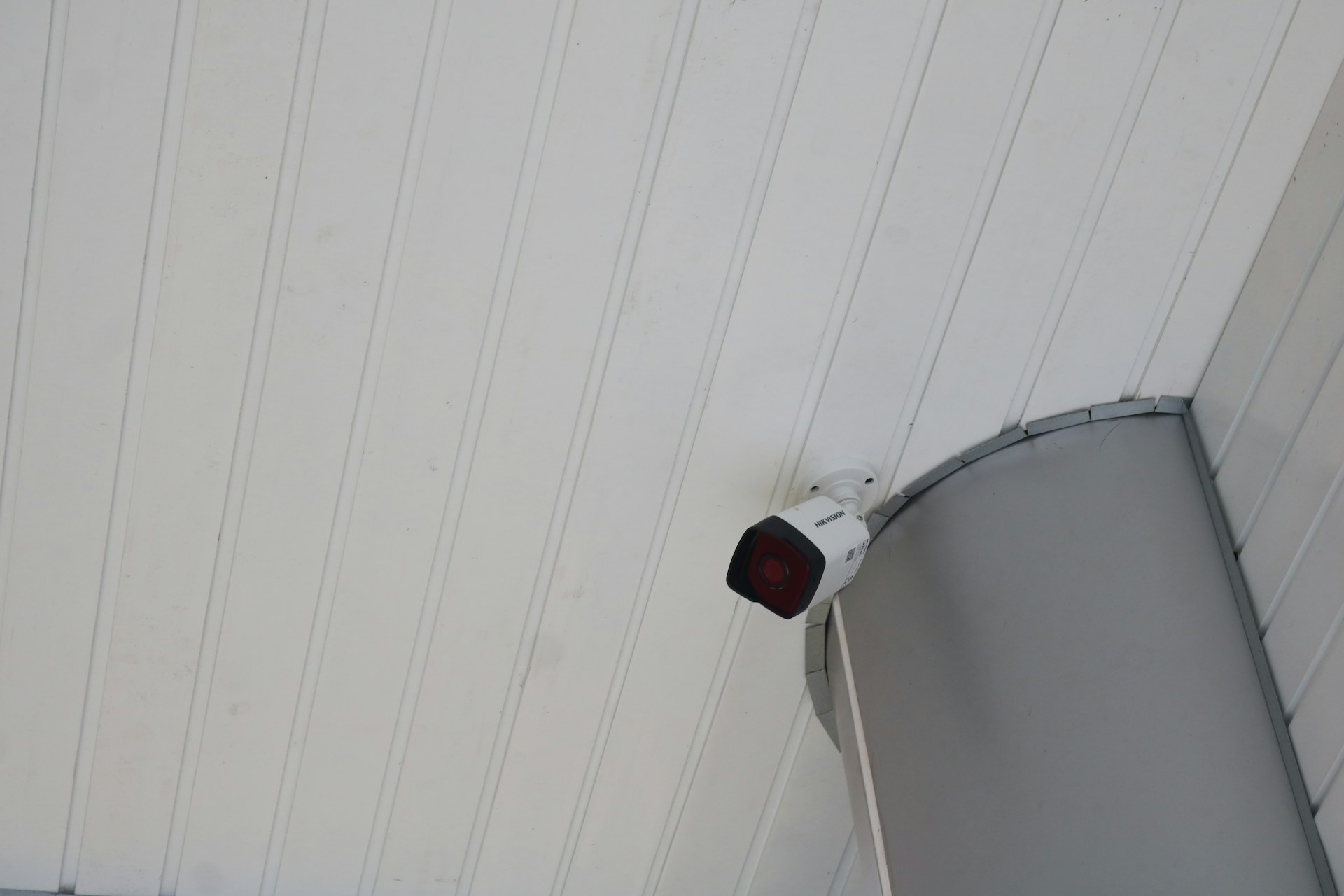Ensuring the safety of your property and its occupants is crucial, and one key aspect of that safety is having a functional fire alarm system. If you are in the greater Houston area, it is important to request a fire alarm inspection to maintain compliance with local safety regulations. A regular fire alarm inspection helps identify potential issues before they become serious hazards, ensuring your system operates effectively when needed.
In Houston, various certified inspectors are available to evaluate your fire protection systems. They will assess everything from alarm functionality to emergency exit signage, providing you with peace of mind that your property is secure. When you request a fire alarm inspection, you benefit from expert knowledge and experience tailored to the unique needs of your business or home.
Don't wait until it's too late—proactive maintenance is your best defense. With local services readily available, getting an inspection can be a straightforward process that enhances the safety of your environment. Take the necessary steps to protect what matters most by scheduling your fire alarm inspection today.
Understanding Fire Alarm Inspections in Houston
Fire alarm inspections are crucial for maintaining the safety and protection of your building and its occupants. These inspections ensure that your fire alarm systems comply with local fire codes and national standards, thus safeguarding life and property from fire hazards.
Purpose and Importance of Inspections
The primary purpose of fire alarm inspections is to ensure that your fire detection and alarm systems are functioning properly. These inspections help identify any potential issues before they escalate into serious problems. Regular inspections can also reduce false alarms and ensure prompt notifications during emergencies.
By adhering to a structured inspection schedule, you meet legal requirements and prevent costly penalties. Inspections provide peace of mind, knowing that your fire alarm systems will operate efficiently when needed. This is essential for protecting lives and minimizing property damage.
NFPA 72 and Houston Fire Code Compliance
NFPA 72, also known as the National Fire Alarm and Signaling Code, sets the standard for fire alarm systems in the United States. In Houston, local regulations align with NFPA 72, making compliance essential for all building owners. This means your fire alarm systems must be installed, tested, and maintained according to these stringent guidelines.
Staying compliant not only enhances safety but also satisfies insurance requirements, potentially lowering your premiums. Documentation of compliance is crucial for inspections by local authorities. Regular reviews of your system against NFPA 72 standards ensure you are prepared for emergencies.
Fire Alarm Inspection Requirements for Businesses and Residences
In Houston, businesses and residences are required to undergo regular fire alarm inspections. Commercial properties typically need annual inspections, while residential systems should be inspected every few years, depending on the type of system installed.
You must have certified professionals conduct these inspections. They assess the operational status of your alarms and verify that all components are in good working order. Additionally, they check for compliance with Houston's fire code, ensuring your systems are updated and effective.
Having proof of these inspections can protect you during insurance claims and can be a vital part of a comprehensive fire protection plan. Regular maintenance and inspections allow you to stay ahead of any potential issues, ensuring safety for everyone on your property.
Key Procedures for Requesting a Fire Alarm Inspection
When planning to request a fire alarm inspection in Houston, it's essential to follow specific procedures to ensure compliance and efficiency. This section outlines the necessary steps, required documentation, and options available for scheduling and conducting inspections.
Steps to Schedule an Inspection
To initiate your fire alarm inspection request, start by contacting the Houston Permitting Center. You can call or visit their website for guidance. Provide essential information about your facility, including the address and type of building.
Next, check the fee schedule for inspection services, as there may be associated costs. After gathering required details, submit your request either online or in person. Ensure that you receive confirmation of your inspection date and time from the permitting center. This proactive approach will help streamline the inspection process.
Required Documentation and Forms
Before your scheduled inspection, collect the necessary documentation. Typically, you will need:
- Completed inspection request form: This form can be accessed via the Houston Permitting Center's website.
- Previous inspection reports: If applicable, having previous documentation aids in compliance checks.
- Building plans and schematics: These should detail the fire alarm systems installed.
Submitting these documents ahead of time can expedite the review process, ensuring all necessary paperwork is in order. Check the Houston Permitting Center for any additional requirements specific to your building type.
Inspection Types: Preliminary and Final
Fire alarm inspections in Houston are categorized primarily into preliminary and final inspections.
Preliminary inspections are typically conducted at the project's early stages. This type focuses on verifying that systems are installed according to local codes and regulations.
Final inspections occur once the installation is complete. This assessment ensures that your fire alarm system is fully operational and compliant with safety regulations. Be prepared to demonstrate the functionality of the alarm system during the final inspection.
After-Hours and Special Inspection Requests
If your operational schedule does not align with standard inspection hours, you can request after-hours inspections. This option may involve additional fees and requires prior approval from the Houston Permitting Center.
For those needing specific arrangements, such as special inspections due to unique building conditions or regulatory requirements, be sure to communicate these needs upfront. The permitting team can provide guidelines on any extra documentation or fees associated with special requests. Always confirm these details in advance to avoid delays.
Fire Alarm System Components and Inspection Methods
Understanding the critical components of fire alarm systems and the methods used for their inspection is essential for ensuring safety and functionality in your property. This section outlines the primary elements of these systems and the routine checks necessary for compliance and effectiveness.
Fire Alarm Control Panel and Initiating Devices
The fire alarm control panel (FACP) is the system's command center. It receives signals from initiating devices and processes alarms. Your control panel must be regularly inspected to ensure proper operation.
Initiating devices include smoke detectors and manual pull stations. Testing involves checking device sensitivity, ensuring circuits are intact, and confirming that the panel correctly registers alarms. Regular inspections can prevent failure during emergencies, making it vital for your fire protection system.
Smoke Detectors and Wireless Fire Alarm Systems
Smoke detectors are crucial in early fire detection. They come in various types, including ionization and photoelectric models, each with unique detection capabilities. You should test these units monthly to ensure they function properly.
Wireless fire alarm systems offer flexibility and ease of installation. Regular inspections for these systems include verifying signal strength and ensuring the batteries are charged. Proper maintenance helps you avoid costly oversights and ensures that your smoke detectors are consistently effective.
Testing and Maintenance Routines
Routine testing and maintenance are fundamental to fire alarm systems. Inspections should occur annually and involve comprehensive checks of all components.
Key activities include:
- Functional Testing: Verify that all devices respond appropriately.
- Visual Inspections: Check for physical damage or obstructions around devices.
- Battery Checks: Ensure batteries are operational and replace them as needed.
Document these inspections diligently; it helps maintain compliance with local regulations and enhances overall safety in your Houston property.
Regulatory Authorities and Code Enforcement in Houston
In Houston, various regulatory authorities play critical roles in fire alarm inspections and code enforcement. Understanding their functions ensures compliance with safety standards and the protection of life and property.
Roles of the Fire Marshal Office
The Fire Marshal Office is pivotal in enforcing fire codes and safety regulations within Houston. This office conducts inspections on fire alarm systems, sprinklers, and other safety mechanisms in commercial and residential buildings. It plays a crucial role in the plan review process, ensuring that new constructions meet safety standards before occupancy.
Key responsibilities include:
- Inspections: Perform regular evaluations to confirm compliance with local fire codes.
- Permit approvals: Review applications for fire alarm systems and fire protection equipment.
- Enforcement: Implement penalties for non-compliance to maintain safety standards.
Through these actions, the Fire Marshal Office helps maintain the safety and integrity of your environment.
Houston Fire Department Oversight
The Houston Fire Department oversees operational aspects of fire safety, including inspections and enforcement of fire codes. Through its Life Safety Bureau, the department ensures that all fire safety systems operate effectively.
You can expect the following services:
- Collaboration: Works in conjunction with the Fire Marshal Office to perform thorough inspections.
- Code Enforcement: Monitors compliance with the Houston Fire Code and other relevant regulations.
- Public Education: Provides resources and training to help businesses understand their fire safety responsibilities.
By engaging with the Houston Fire Department, you gain insights into maintaining compliance and ensuring safety.
Harris County Engineering Department and High-Piled Storage
The Harris County Engineering Department plays a crucial role in regulating high-piled storage and ensuring compliance with safety regulations. This department mandates specific codes that dictate how materials must be stored in warehouses to prevent fire hazards.
Essential points include:
- Permit Requirements: Any new high-piled storage setup requires a permit and a detailed inspection.
- Safety Standards: Adherence to safety standards is enforced to prevent fire risks associated with stored materials.
- Collaboration with Fire Authorities: Works closely with the Fire Marshal Office and Fire Department to ensure comprehensive safety oversight.
This structured approach ensures that your high-piled storage operations comply with necessary regulations, mitigating fire hazards effectively.
Inspection Schedules, Fees, and Maintaining Compliance
Understanding the specifics of fire alarm inspection schedules, fees, and compliance is crucial for maintaining safety standards in your property. Regular inspections not only ensure functionality but also help you stay compliant with local regulations in the greater Houston area.
Annual and Periodic Inspection Schedules
In Houston, fire alarm systems require annual inspections to meet compliance with local codes and regulations. These inspections typically include a comprehensive review of your system's components, such as control panels and detection devices.
In addition to annual checks, periodic inspections, often conducted quarterly or semiannually, are necessary to ensure ongoing functionality. A certified technician should conduct these checks to identify potential issues early, minimizing risks and ensuring safety. Adherence to a set schedule not only protects lives but can also prevent costly insurance claim rejections.
Fee Structures and Payment Process
Fire alarm inspection fees can vary based on the extent of services required. You may find that basic inspections cover required tests and activities necessary for compliance. More comprehensive services may incur additional costs.
For detailed information, refer to the fee schedule provided by local companies. When arranging an inspection, ensure you discuss payment options and any financing available. Being clear on costs upfront helps avoid unexpected expenses.
Recordkeeping and Submission of Inspection Reports
Proper documentation of your fire alarm inspections is essential for compliance. You should maintain records of all inspection reports, including both annual and periodic evaluations. This documentation provides proof of compliance and can be critical during audits or when dealing with insurance claims.
Additionally, submitting inspection reports to the local fire department, as part of the compliance process, is vital. In Houston, you can utilize specific resources that facilitate this reporting. Always keep copies for your records, and ensure that all submissions are made timely to avoid penalties.
Fire Prevention, Life Safety, and Contact Resources
Understanding fire prevention and life safety initiatives is essential for protecting your property and ensuring the safety of occupants. In Houston, several resources are available to assist you in these areas.
Life Safety and Fire Prevention Initiatives
The Houston Fire Department prioritizes life safety through structured programs and inspections. These initiatives are designed to minimize fire hazards and ensure buildings comply with safety regulations.
You can expect thorough fire inspections from the Houston Fire Marshal's Office, which covers arson prevention, code enforcement, and educational outreach. Regular inspections help identify potential fire risks and maintain compliance with safety standards.
Additionally, the Harris County Fire Marshal's Office focuses on life safety to ensure all new and existing structures meet the necessary fire codes. Engaging with these organizations can significantly reduce risks and enhance safety for you and your community.
Available Public and Professional Resources
In Houston, multiple resources are available for both public and professional use. You can contact the Harris County Fire Marshal's Office for information on fire prevention programs, code compliance, and educational resources.
For businesses, the Inspection Services Division offers guidance on preparing for fire inspections. Engaging in their programs can enhance your understanding and improve your property's safety protocols.
If you need to report a fire hazard or request an inspection, you can reach out to local fire departments or their respective offices via their websites or direct lines listed there. Keeping these contact resources handy ensures you are prepared to address any fire safety issues promptly.
Frequently Asked Questions
When considering a fire alarm inspection in Houston, you may have specific inquiries about scheduling, costs, and legal requirements. This section addresses common questions to help you navigate the process effectively.
How do I schedule a fire alarm inspection in Houston?
To schedule a fire alarm inspection, you can contact the Houston Fire Department or utilize their online services. Typically, you will need to provide details about your location and the type of inspection required. Be prepared to offer any relevant documentation related to your fire alarm system.
What is the cost of a fire alarm inspection in Houston?
The cost of a fire alarm inspection can vary based on the size and complexity of your system. Generally, you can expect fees to be established by the Houston Fire Department. It’s advisable to check directly with them for the most accurate and current pricing information.
Are annual fire alarm inspections required by law in Houston?
Yes, annual fire alarm inspections are required by law in Houston to ensure compliance with safety standards. Regular inspections help maintain the functionality of your fire alarm system and safeguard your property. It's crucial to adhere to these regulations to avoid potential penalties.
What is included in a Harris County Fire Marshal inspection checklist?
A Harris County Fire Marshal inspection checklist typically includes assessments of your alarm system's components, emergency exits, and compliance with local fire codes. Inspectors will also evaluate the accessibility of equipment and any hazardous materials present on-site. Familiarizing yourself with this checklist can help you prepare for the inspection.
How can I request a fire alarm permit in the city of Houston?
To request a fire alarm permit, you must submit an application through the Houston Permitting Center. Ensure all necessary documentation and fees are included with your application to facilitate the permit approval process. Check the city’s website for additional details and requirements.
What is the process to obtain open records from the Harris County Fire Marshal?
To obtain open records from the Harris County Fire Marshal, you should submit a formal request through their open records portal. Specify the information you need clearly to expedite the process. Familiarize yourself with any applicable fees or time frames associated with your request to avoid delays.
.svg)



.svg)


.svg)



